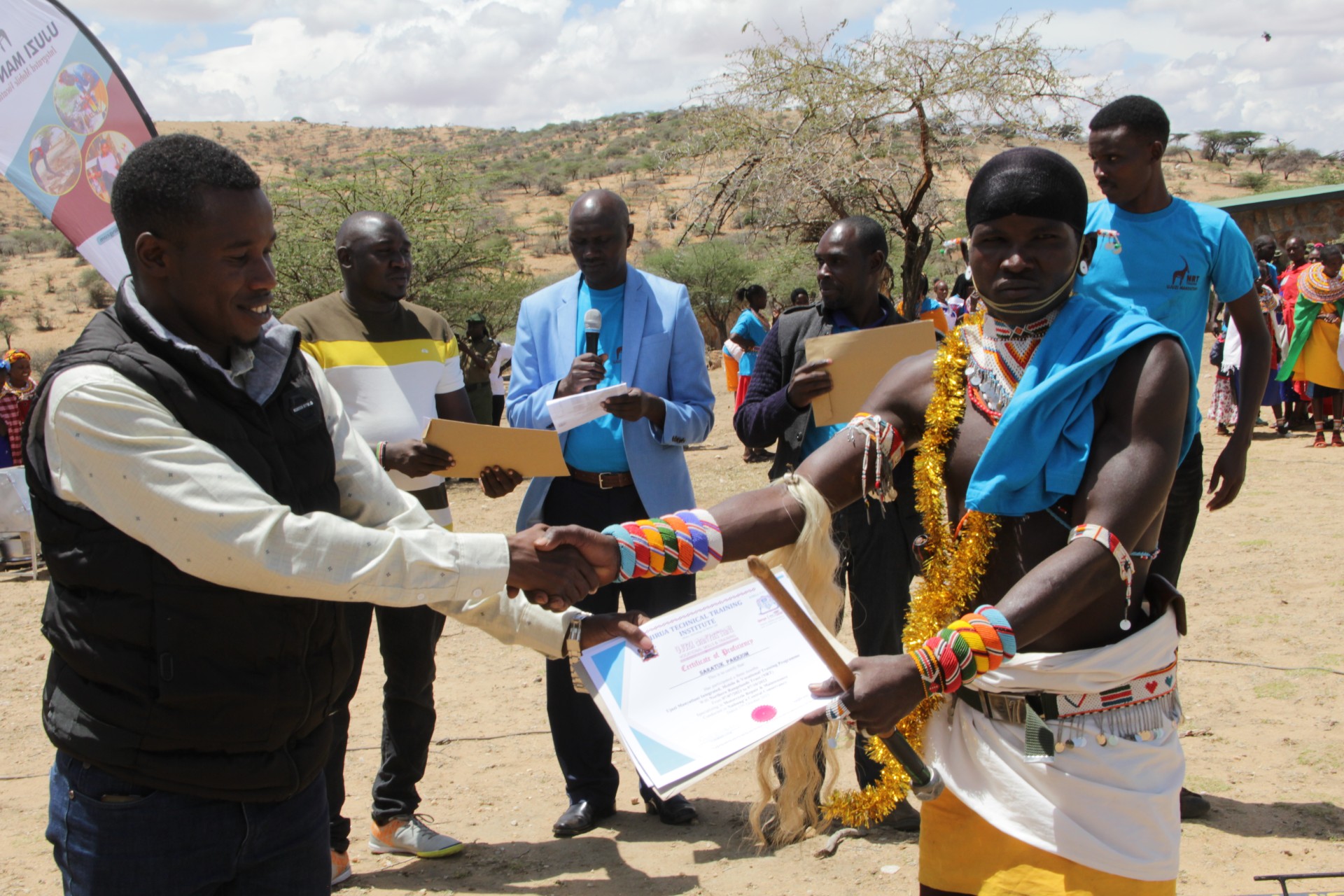Thirty youths from Laikipia County have graduated from a three-month training on various courses that will equip them with skills to start income-generating ventures in the area.
The 30 who included 13 males and 17 females hail from Laikipia North Sub County and were trained in tailoring and dressmaking, hairdressing and beauty therapy, and motorcycle mechanics. The youth were also gifted with tools to help them start their ventures upon graduating.
The training dubbed Ujuzi Manyattani is part of a continuous exercise facilitated by Northern Rangelands Trust (NRT) and the United States Agency for International Development (USAID) in a bid to empower rural communities with limited access to quality education to gain economic skills to sustain their livelihoods.
“Ujuzi Manyattani is a mobile vocational training model that supports youth and women who ordinarily are kept out of formal learning institutions due to lack of literacy, distance from educational centers, and lifestyle. Most young men are mainly entrusted with providing labour (herding) and homestead security but have limited economic skills and low literacy levels,” NRT Mt. Kenya coordinator Aloise Lekuton said during the graduation on Tuesday at Naibunga Conservancy.
“The program seeks to equip them with opportunities to diversify their livelihoods and reduce continued poverty and conflict cycles,” she noted.
Lekuton revealed that Sh100,000 was used to train each student during the three-month period they were in class.
Ujuzi Manyattani coordinator for the County Peter Nguno said that the programme targets illiterate youth from pastoralist communities and those with limited literacy skills for the training to economically empower them and dissuade them from engaging in vices such as cattle rustling or early marriages.
“We are going to give them start-up tool kits so that they can start their businesses immediately and we have also incorporated a business training module so that we train them on how to manage and run their startups successfully.
Nguno revealed that since the inception of the programme in 2019, 1102 youth from seven Counties of West Pokot, Baringo, Isiolo, Samburu, Marsabit, Garissa and Laikipia had been trained on various economic venture courses.
“We also monitor the progress of their ventures through regular visits to their business premises where we also mentor and advise them on emerging business trends,” Nguno said.
He added that the programme has had a huge impact in pastoralist areas by transforming young men (morans) who engage in cattle rustling and banditry while their female counterparts are married off at an early age have a different approach to life by engaging in entrepreneurship.
“Some of our trainees under this programme are doing well in business and have become employers. We have a lady who opened a dressmaking shop in Isiolo County and has now employed four people as her venture expands,” Nguno said.
Saratuk Parkiom 23, who trained as a motorcycle mechanic said he was looking forward to changing his life by engaging in income-generating activities as opposed to herding cattle as he previously did for the last five years after dropping out of primary school.
“I know with the skills I have earned from this training I will be able to earn a living and also start a family,” Parkiom said.
“I am not looking back, I have the skills and the right tools to work,” an elated Parkiom said.
Jacinta Setek who trained in hospitality and catering said that the skills and equipment she had acquired would enable her to start a hotel at her village to earn a living.
“I look forward to running my own hotel and possibly employ some youth as well,” Setek a mother of two said.
Ujuzi Manyattani is an initiative innovated and driven by NRT through the support of the USAID Local Works Program. It offers mobile vocational training to youth and women in 8 Counties. The program aims to prepare the youth for opportunities arising from Vision 2030 projects and devolution while promoting the government’s adoption of mobile vocational training.

